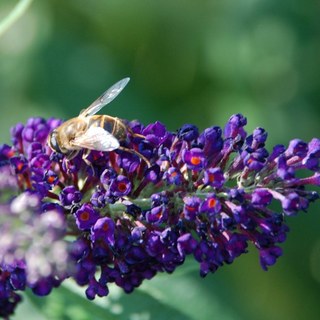Pollinator Research Garden
Our Mission: We will provide research-based information for educational programs in an effort to shift the mindset of our community from rigid and pristine traditional gardening practices that are ecologically sterile to what nature has intended: a vast, complex web of interactions that ensures a healthy environment which supports pollinators and promotes the conservation of their ecosystems.
The Berks County Pollinator Garden was established in 2012 as part of a statewide initiative to collect pollinator data from identical plantings at dozens of Master Gardener sites across Pennsylvania. Though the monitoring program is no longer active, information provided from these studies has been used to support the Pollinator Friendly Garden Certification Program. Since the program began, more than 1000 pollinator-friendly gardens have been certified in 57 counties including Berks.
The current focus of the Pollinator Friendly Garden (PFG) is to create and maintain habitat using native plants that support a variety of pollinators throughout their life cycles. This includes certification as a Monarch Waystation. We also participate in the Great Sunflower Project, a citizen science program, by collecting data on pollinator visits to Helianthus annus ‘Lemon Queen’ annual sunflowers as well as our established perennial native species. Our PFG team, in addition to garden related tasks, provides educational outreach concerning the key role pollinators play in the ecosystem. Our PFG Master Gardener volunteers fulfill the vital roles of both protecting our native pollinators as well as presenting informational programs for our community at large.
Established plant species included in our PFG offer three seasons of bloom:
Spring: Golden Alexander (Zizia aurea)
Summer: Butterfly Weed (Asclepias tuberosa), Joe Pye Weed (Eutrochium dubium ‘Baby Joe’), Short-toothed Mountain Mint (Pycnanthemum muticum), Stiff Goldenrod (Oligoneuron rigidum), Swamp Milkweed (Asclepias incarnata), Wild Bergamot or Bee Balm (Monarda fistulosa)
Fall: Aromatic Aster (Symphyotrichum oblongifolium), Rough Goldenrod (Solidago rugosa ‘Fireworks’), Showy Goldenrod (Solidago speciosa)
These plants support pollinators by producing nectar and pollen as food sources throughout the growing season. In addition, certain species serve as host plants for specific pollinators and, furthermore, provide habitat including overwintering the larvae of stem nesting bees.


